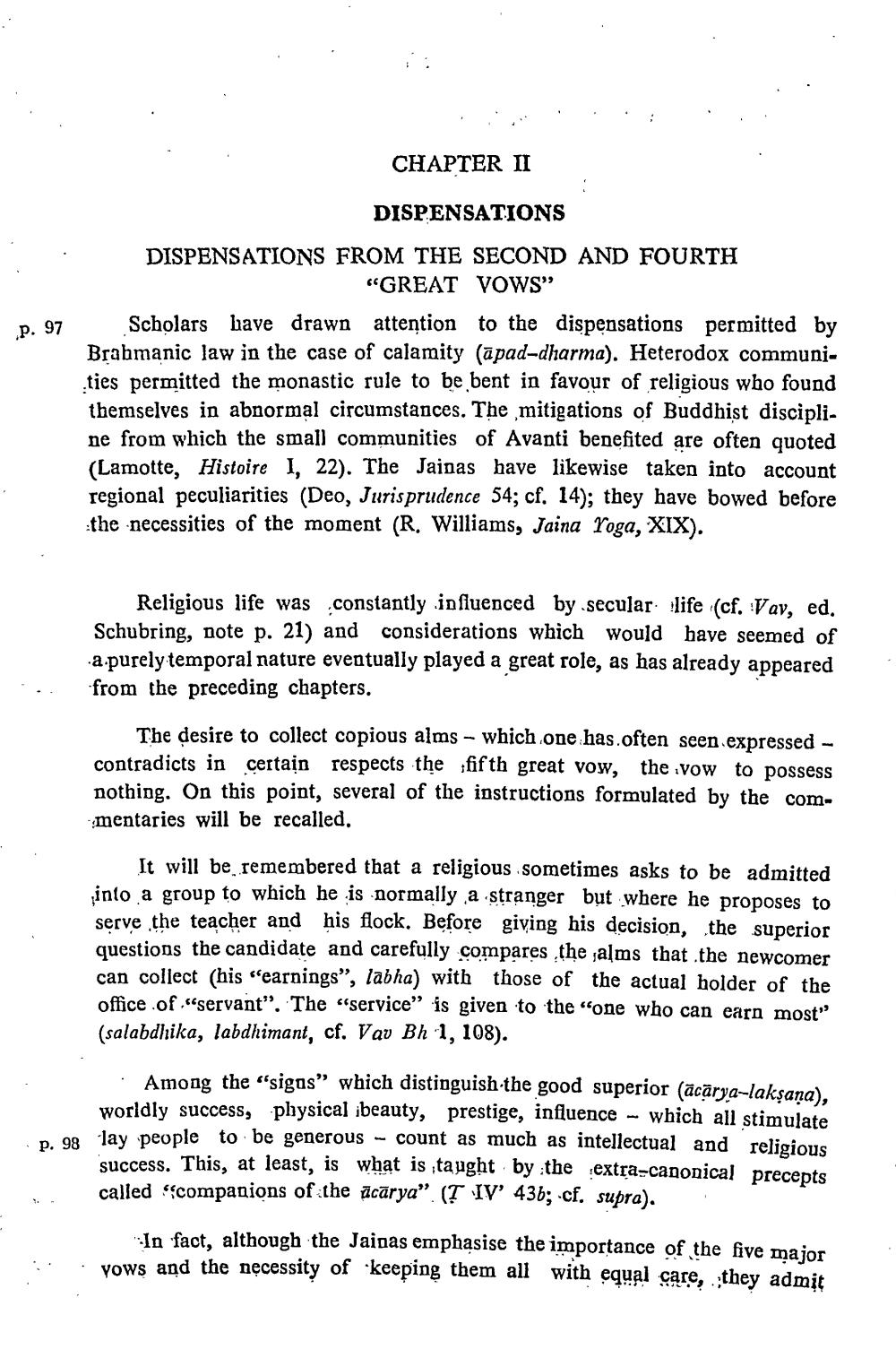________________
CHAPTER II
p. 97
DISPENSATIONS DISPENSATIONS FROM THE SECOND AND FOURTH
“GREAT VOWS" Scholars lave drawn attention to the dispensations permitted by Brahmanic law in the case of calamity (āpad-dharma). Heterodox communities permitted the monastic rule to be bent in favour of religious who found themselves in abnormal circumstances. The mitigations of Buddhist discipline from which the small communities of Avanti benefited are often quoted (Lamotte, Histoire I, 22). The Jainas have likewise taken into account regional peculiarities (Deo, Jurisprudence 54; cf. 14); they have bowed before the necessities of the moment (R. Williams, Jaina Yoga, XIX).
Religious life was constantly influenced by secular life (cf. Vav, ed. Schubring, note p. 21) and considerations which would have seemed of a.purely temporal nature eventually played a great role, as has already appeared from the preceding chapters.
The desire to collect copious alms – which one has.often seen expressed - contradicts in certain respects the fifth great vow, the vow to possess nothing. On this point, several of the instructions formulated by the commentaries will be recalled.
It will be remembered that a religious sometimes asks to be admitted into a group to which he is normally a stranger but where he proposes to serve the teacher and his flock. Before giving his decision, the superior questions the candidate and carefully compares the jalms that the newcomer can collect (his "earnings”, labha) with those of the actual holder of the office.of."servant”. The “service" is given to the one who can earn most" (salabdhika, labdhimant, cf. Vav Bh 1, 108).
. Among the "sigas” which distinguish the good superior (ācārya-laksana). worldly success, physical ibeauty, prestige, influence - which all stimulate 99 lay people to be generous - count as much as intellectual and religious
success. This, at least, is what is taught by the extra-canonical precepts called "companions of the acārya”. (T IV' 436; cf. supra).
:.
In fact, although the Jainas emphasise the importance of the five major . yows and the necessity of keeping them all with equal care, they admit




